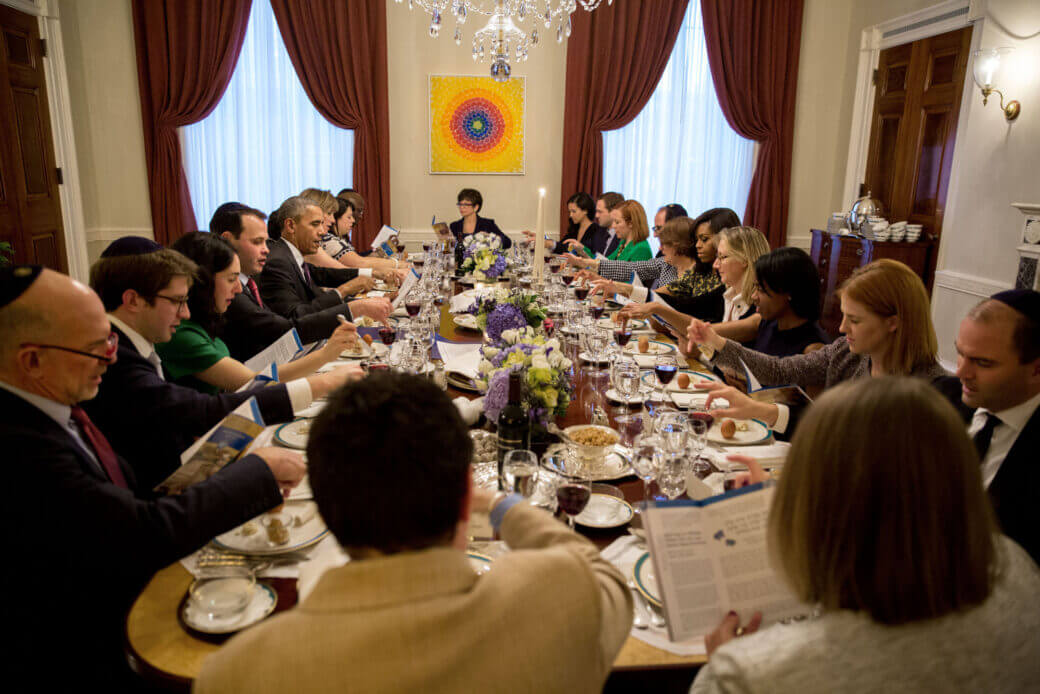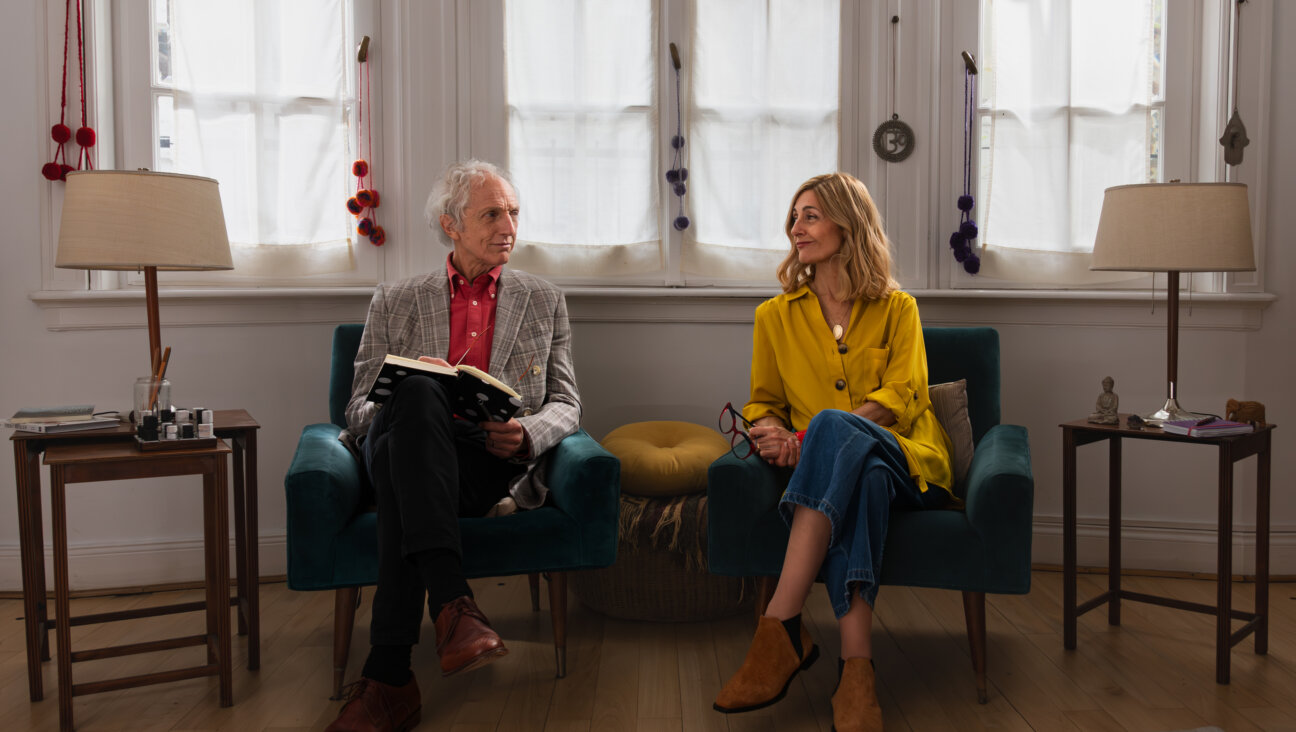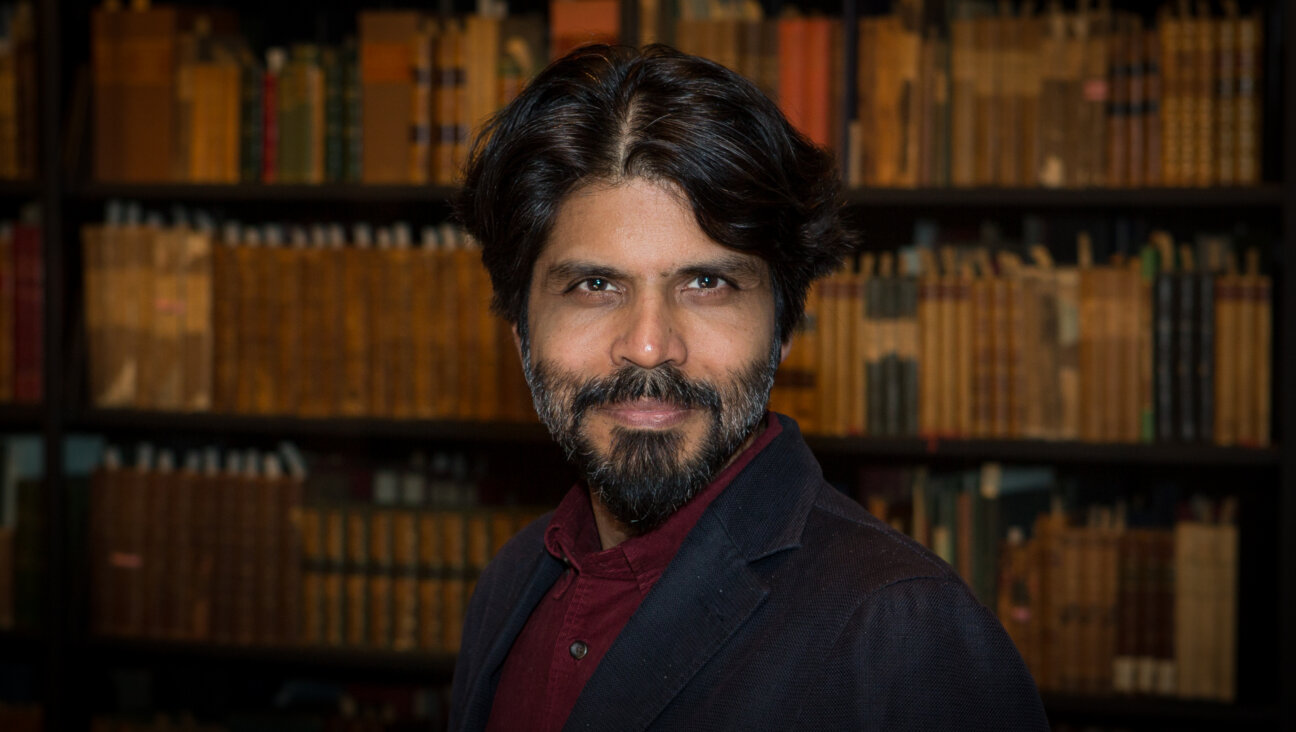Bad Girls: Burlesque Show Puts Jewish Women in the Spotlight

BAGEL BEAUTIES: Nice Jewish Girls Gone Bad blend singing, dancing, and stand-up comedy.
Jewish burlesque seems, in a way, only natural. Sex and humor are inextricably bound in Jewish culture (or at least in certain precincts of it); potty-mouthed, voluptuous women are celebrated. The burlesque tradition took root in the Yiddish theater nearly a century ago when Jewish thespians, not content to be restrained by a single medium, decided that their plays would include a bit of everything: song and dance, sentimentality and comedy, romance and raunchiness. This is precisely the logic employed by the burlesque troupe Nice Jewish Girls Gone Bad, which performed a three-week run this month at The Zipper Factory, a funky off-Broadway theater in New York City’s Hell’s Kitchen.

BAGEL BEAUTIES: Nice Jewish Girls Gone Bad blend singing, dancing, and stand-up comedy.
The Zipper Factory, one of the few off-Broadway theaters that maintains a full bar in its lobby, is the perfect venue for NJGGB. The evening’s vibe — one of communion and cleavage — was set pre-show. Performers and audience members alike congregated at the bar and drank He’Brew beer, while one of the show’s dancers, an Amy Winehouse look-alike but with fake tattoos instead of real ones, warmed up on a stripper pole in the corner.
NJGGB is the brainchild of actress/songstress/comedian Susannah Perlman, a buxom 30-something with a seasoned performer’s command of the stage. She started the group five years ago because, as she explained in her opening monologue, there’s “no shortage of Jewish women going: ‘Look at me! Look at me!’” The show’s humor is often local (“I’m glad I flier-ed [the ultra Orthodox enclave of] Boro Park”). To be a Jewish insider in New York, it seems, is also
to be a New York insider. This was fine with the audience, filled primarily with 20- to 30-year-old New York Jews, but one wonders how the material plays in other cities. A later act, Rena Zager, riffed on the differences between Manhattanites and Brooklynites — a Jewish twist on the African American “How black people are different from white people” routine.
The show — five parts standup comedy, two parts bawdy song and dance — puts a new spin on familiar themes. These are modern Jewish women who spend time not only looking for husbands on JDate but also looking for booty on Craigslist. “You get dinner on JDate and laid on Craigslist,” Perlman explained to a nodding, knowing audience.
Other recurring motifs included common Jewish physical attributes (Mindy Raf, who came off as a more mature Sarah Silverman, described her uni-brow as a “Jewni-brow”) and the loquaciousness of the Jewish people (Zager: “Jews are like an emotional weather channel — reports every 10 minutes”).
Mixed in between the standup acts were song-and-dance routines that were often led by Perlman, who made more costume changes than Britney Spears at the MTV Video Music Awards. At one point, Perlman emerged wearing a shiny, blue, low-cut, one-piece pantsuit that looked like it was left over from a 1970s Jewish-singles roller-disco. “I’m bringing camel-toe back!” Perlman proclaimed before launching into a routine involving spinning dancers dressed as dreidels.
Perlman has deep roots in the Yiddish stage — her ancestors were prewar players in Romania — and so she clearly understands the dynamism necessary in building an effective Vaudevillian show. There were a few near misses, such as an un-ironic poetry slam that seemed to belong in another show, but most of the acts gelled nicely. One dance number, a “Fiddler on the Roof” parody, involved stripping Hasidim wearing Star of David pasties beneath their tefillin; another was a song called “What’s in Gefilte Fish?” in which Perlman offered audience members spoonfuls of canned gefilte fish and declared, “It’s ‘Fear Factor’ for Jews.”
The show’s high point arrived toward the evening’s close, when Second City alum Rebecca Drysdale emerged in a red wool Santa-and-Rudolph cardigan and launched into a pitch-perfect monologue that parodied a bat mitzvah speech. Drysdale kept a remarkably straight face as she hit each note like the wobbly-voiced adolescent that she must have been. “The Torah portion I read today,” she deadpanned, “means as much to me in English as it does in the original Hebrew.” She closed her performance with an “American Idol” auditions-worthy rendering of the opening of her Haftorah, before announcing to the congregation, “Now would everyone stand for no reason.” Some audience members chose to rise — but out of appreciation rather than obligation.
The show closed with the entire cast forming a chorus line and singing songs: a Yiddish drinking song and some Hebrew school classics. Audience members were encouraged to sing along, and many could be seen mouthing the Yiddish and Hebrew words. The finale seemed to embody thespirit of the evening — a coming together of young Jews, unsure of their place in Jewish culture but having a lot of fun figuring it out.
Adam Wilson is a writer living in New York. He mainly writes about Jews and sex.
The Forward is free to read, but it isn’t free to produce

I hope you appreciated this article. Before you go, I’d like to ask you to please support the Forward.
At a time when other newsrooms are closing or cutting back, the Forward has removed its paywall and invested additional resources to report on the ground from Israel and around the U.S. on the impact of the war, rising antisemitism and polarized discourse.
Readers like you make it all possible. We’ve started our Passover Fundraising Drive, and we need 1,800 readers like you to step up to support the Forward by April 21. Members of the Forward board are even matching the first 1,000 gifts, up to $70,000.
This is a great time to support independent Jewish journalism, because every dollar goes twice as far.
— Rachel Fishman Feddersen, Publisher and CEO
2X match on all Passover gifts!
Most Popular
- 1

Film & TV What Gal Gadot has said about the Israeli-Palestinian conflict
- 2

News A Jewish Republican and Muslim Democrat are suddenly in a tight race for a special seat in Congress
- 3

Fast Forward The NCAA men’s Final Four has 3 Jewish coaches
- 4

Culture How two Jewish names — Kohen and Mira — are dividing red and blue states
In Case You Missed It
-

Fast Forward ‘Another Jewish warrior’: Fine wins special election for U.S. House seat
-

Fast Forward Cory Booker proclaims, ‘Hineni’ — I am here — 19 hours into anti-Trump Senate speech
-
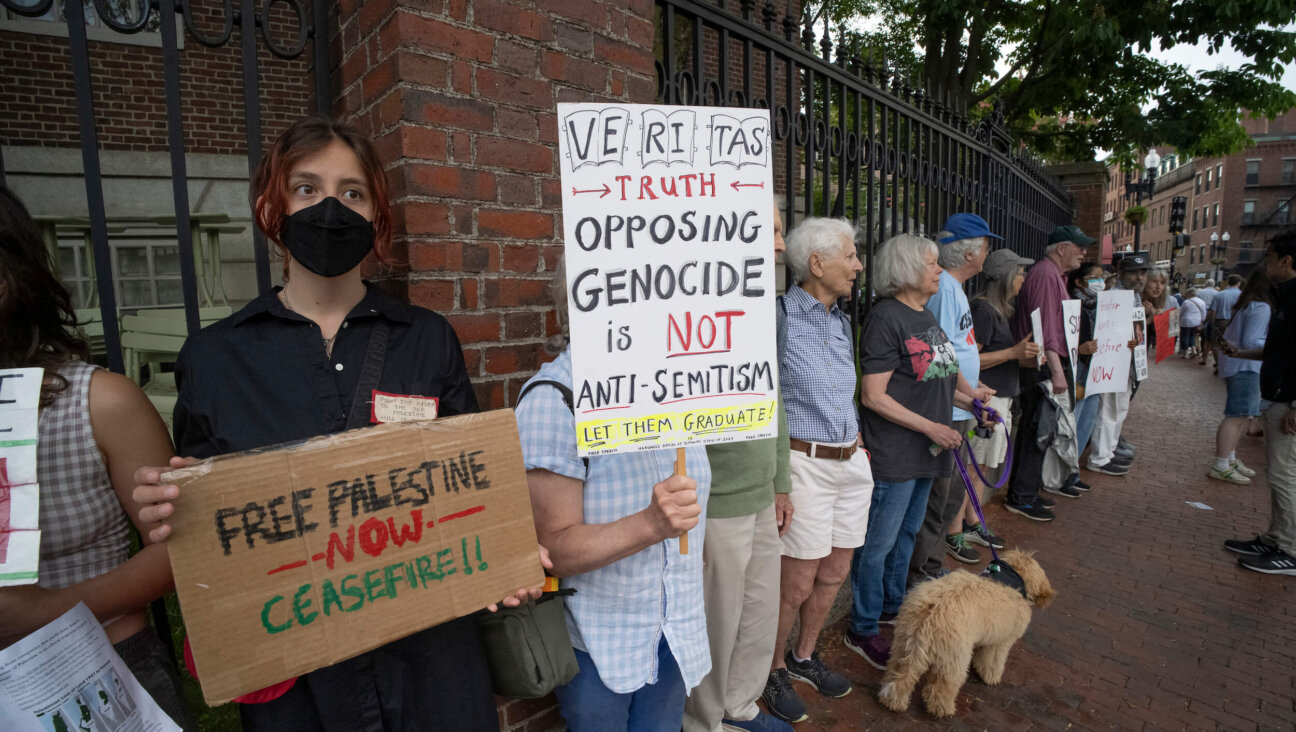
Opinion In Trump’s war against campus antisemitism, hate the tactics but don’t ignore the problem
-
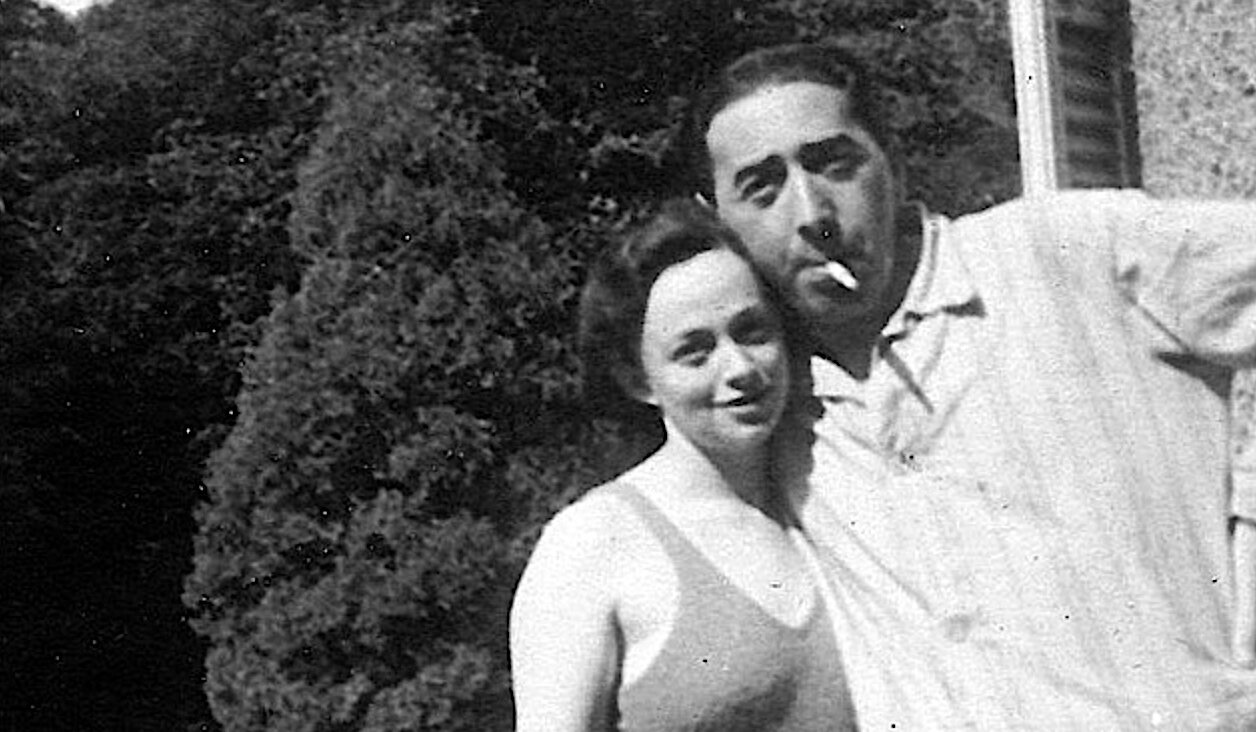
Yiddish כ׳בענק נאָך די וועלטלעכע ייִדן וואָס האָבן אָפּגעריכט אַ טראַדיציאָנעלן סדר Longing for those secular Jews who led a traditional seder
מײַן פֿעטער יונה האָט נישט געהיט שבת און כּשרות אָבער בײַם אָפּריכטן דעם סדר האָט ער געקלונגען ווי אַ פֿרומער ייִד
-
Shop the Forward Store
100% of profits support our journalism
Republish This Story
Please read before republishing
We’re happy to make this story available to republish for free, unless it originated with JTA, Haaretz or another publication (as indicated on the article) and as long as you follow our guidelines.
You must comply with the following:
- Credit the Forward
- Retain our pixel
- Preserve our canonical link in Google search
- Add a noindex tag in Google search
See our full guidelines for more information, and this guide for detail about canonical URLs.
To republish, copy the HTML by clicking on the yellow button to the right; it includes our tracking pixel, all paragraph styles and hyperlinks, the author byline and credit to the Forward. It does not include images; to avoid copyright violations, you must add them manually, following our guidelines. Please email us at [email protected], subject line “republish,” with any questions or to let us know what stories you’re picking up.







